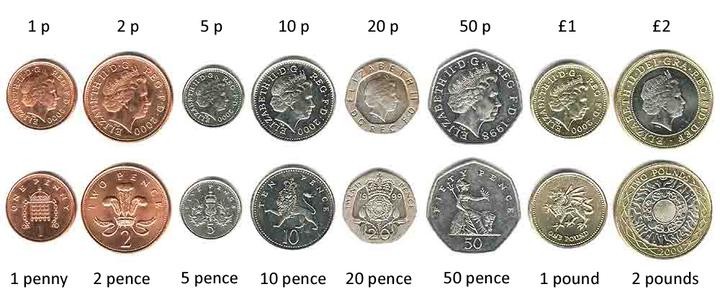Money matters
British notes and coins
There are 100 pence (p) to the pound.
Notes come in denominations of £5, £10, £20 and £50
Coins come in 1p, 2p, 5p, 10p, 20p, 50p, £1 and £2

Using a cash machine
There are plenty of cash machines around London. Most of them accept international cards with the Visa, MasterCard, Cirrus or Maestro symbols.
You will see cash machines in some shops and small supermarkets. Check before using these as they are likely to charge a fee for transaction. Often these will display a LINK symbol.
If you do not wish to use a cash machine, you can ask for a cash back from shops or go to your bank.
Changing currency
There are numerous “Bureau de Change” in London – often located inside banks, travel agents or post offices, as well as at London's airports and major train stations.
To get the best deal, compare the exchange rates on offer and don't forget to ask about the commission. You can ask how many pounds you will receive in total after all charges have been deducted.
If you would like any further advice, please ask someone in the school office.
Opening a bank account
If you are studying English in London and want to open a British bank account, you will need:
● A letter from Britannia that confirms your student status
● A document confirming your address in the UK(e.g. a bill with your name and address)
● The address in your home country
● Your passport or ID
It is normal for the bank to set up an interview with you before they agree to open an account for you, and you may have to go to your appointment during school hours.
Popular UK Banks:
● NatWest
● Barclays
● Lloyds
● HSBC
● Halifax

